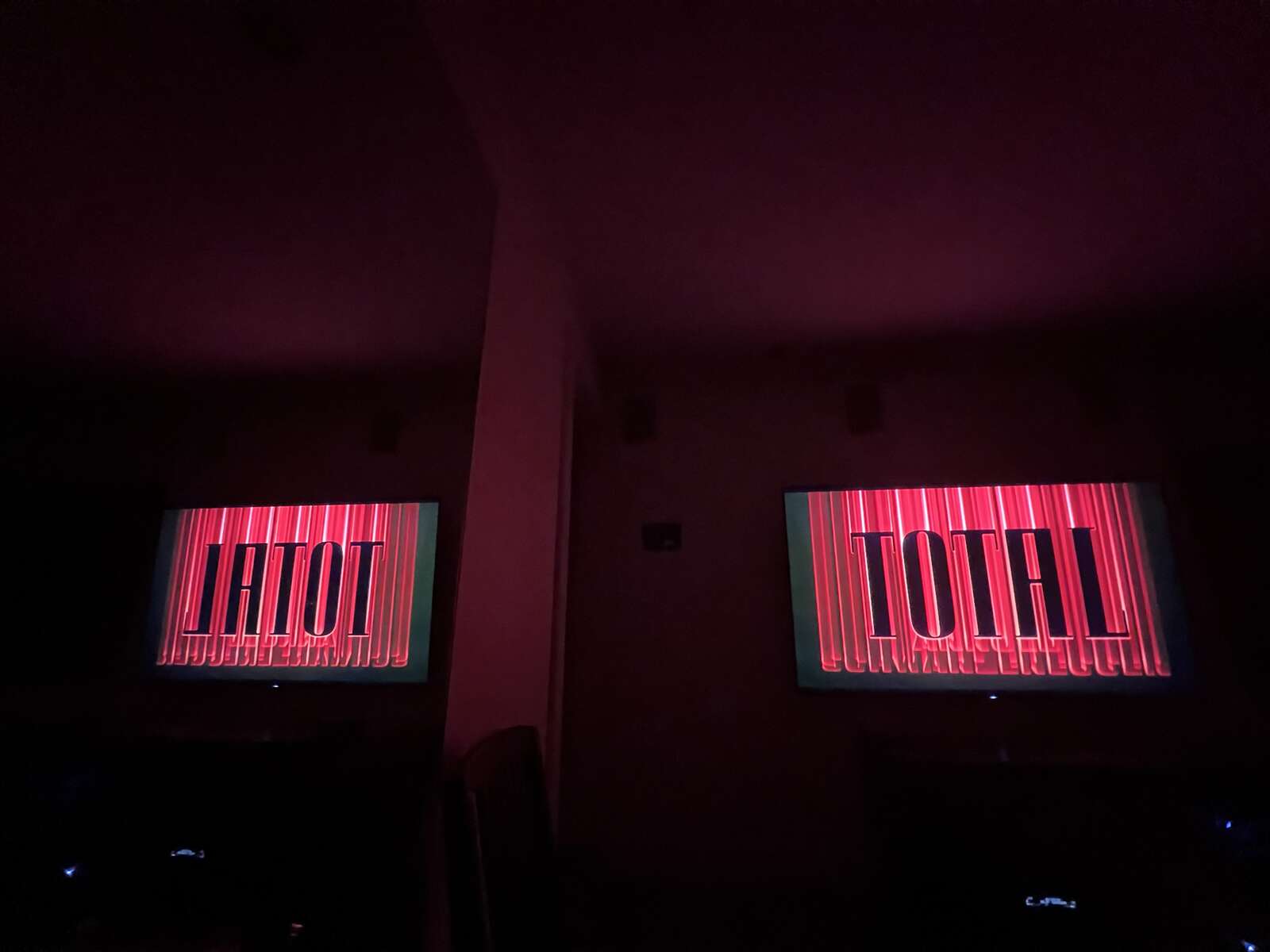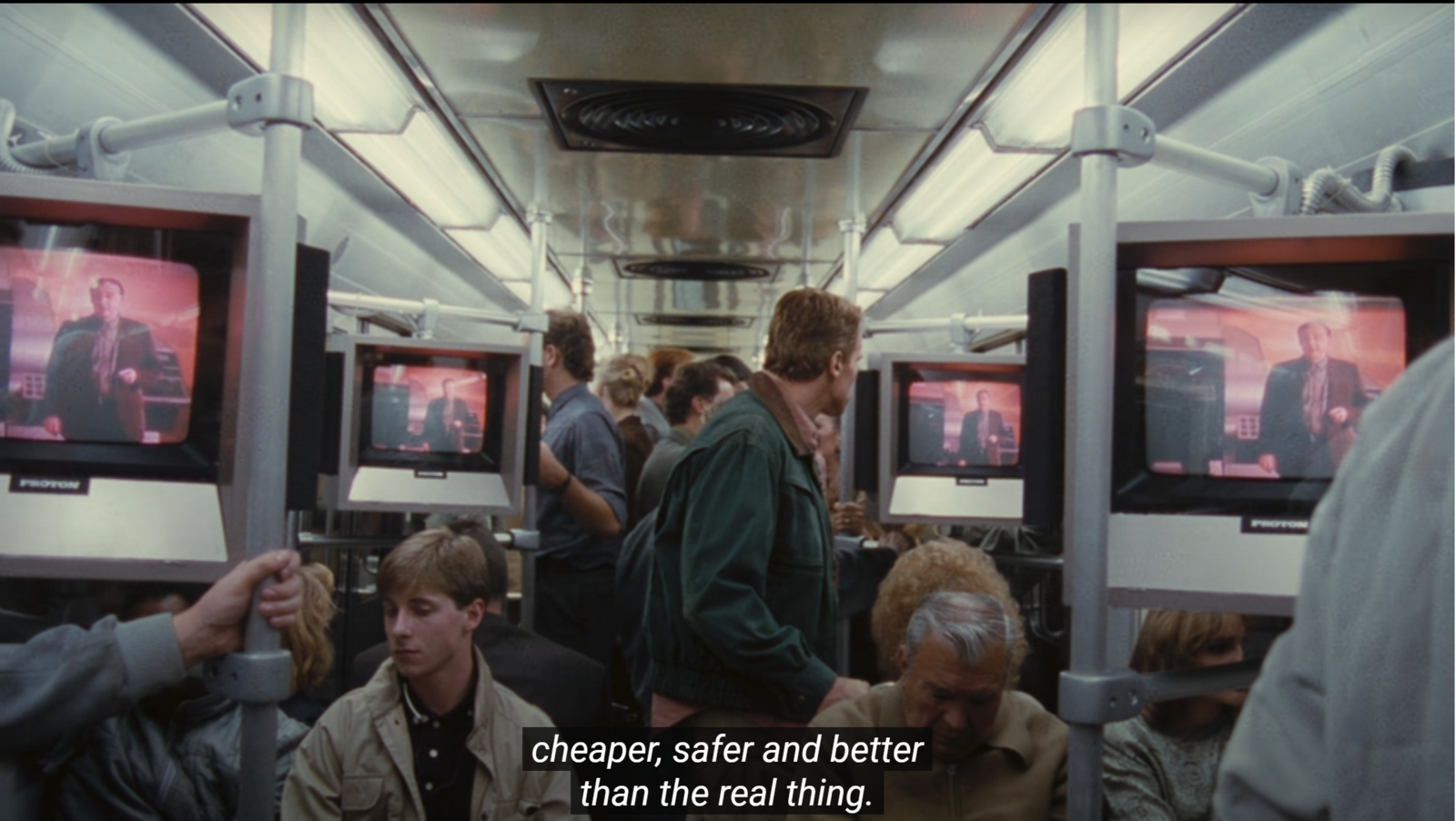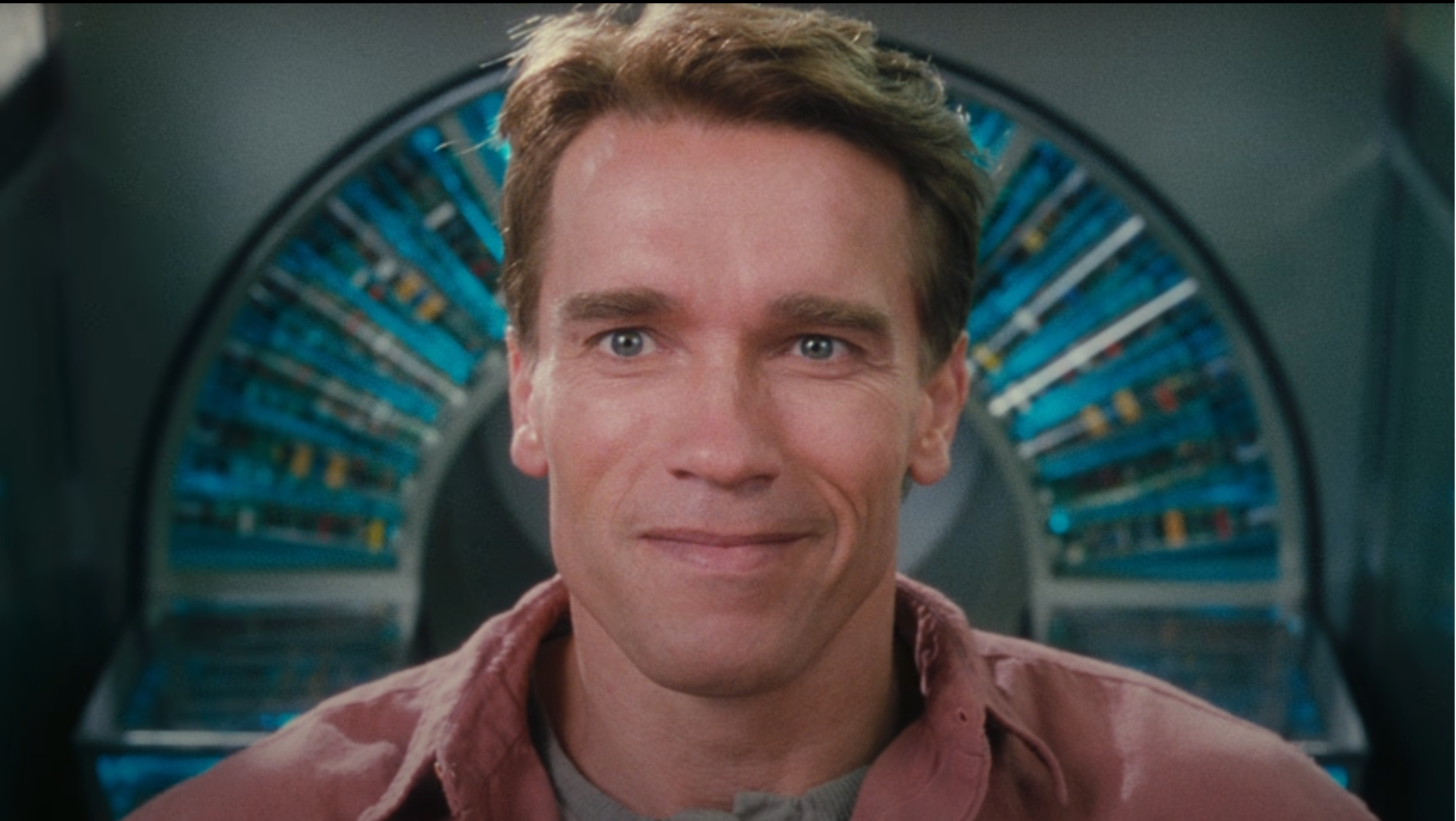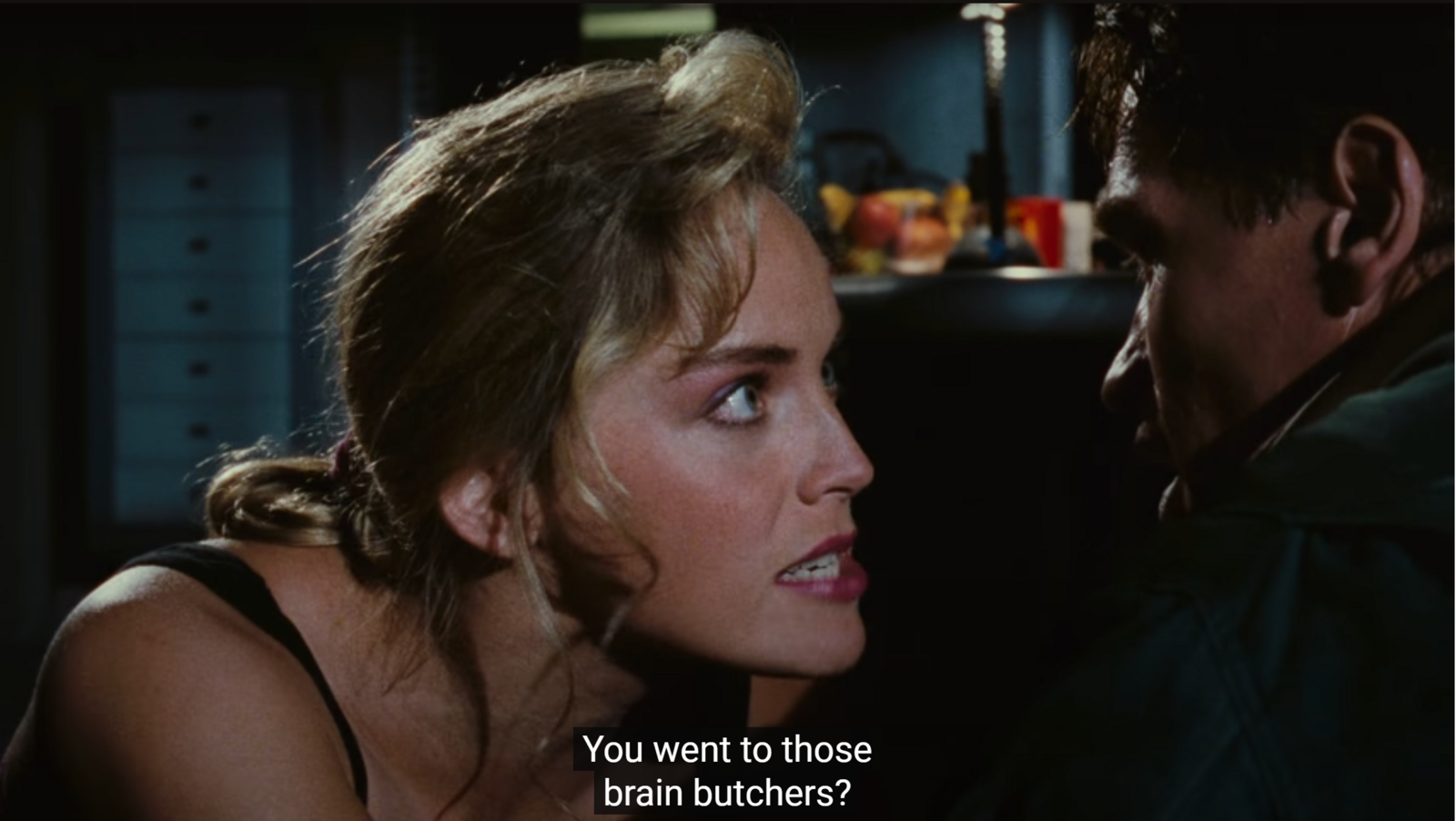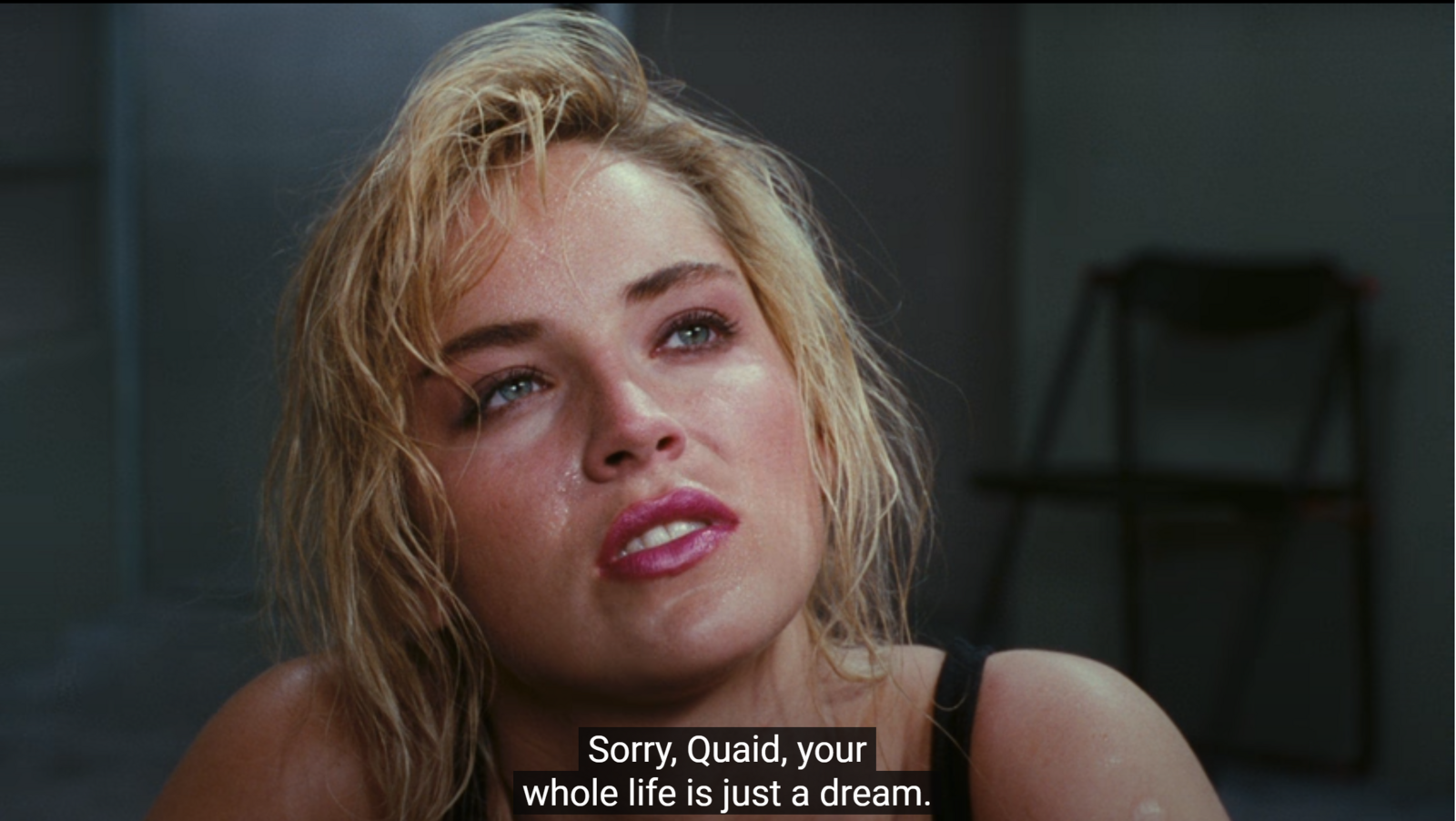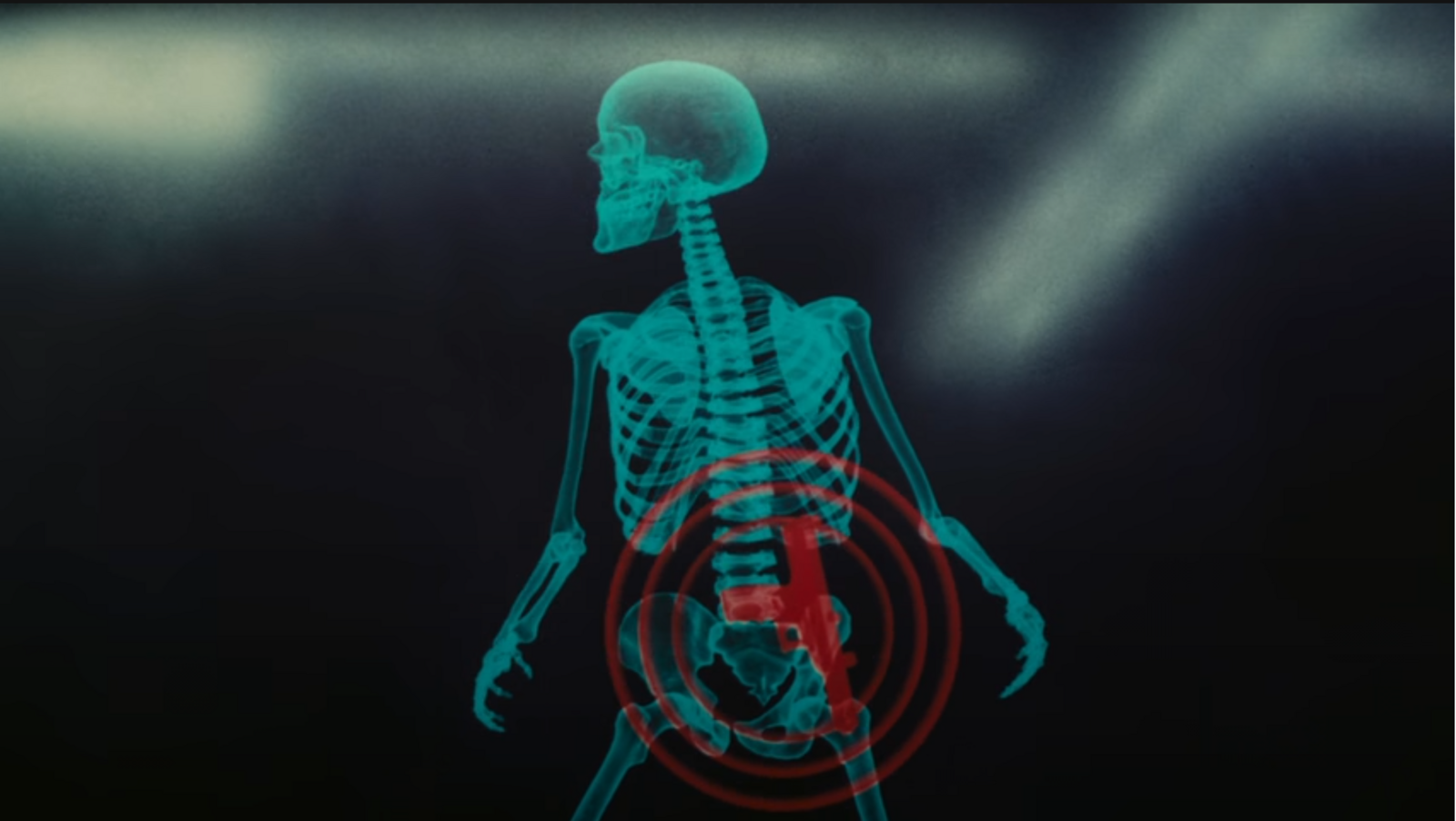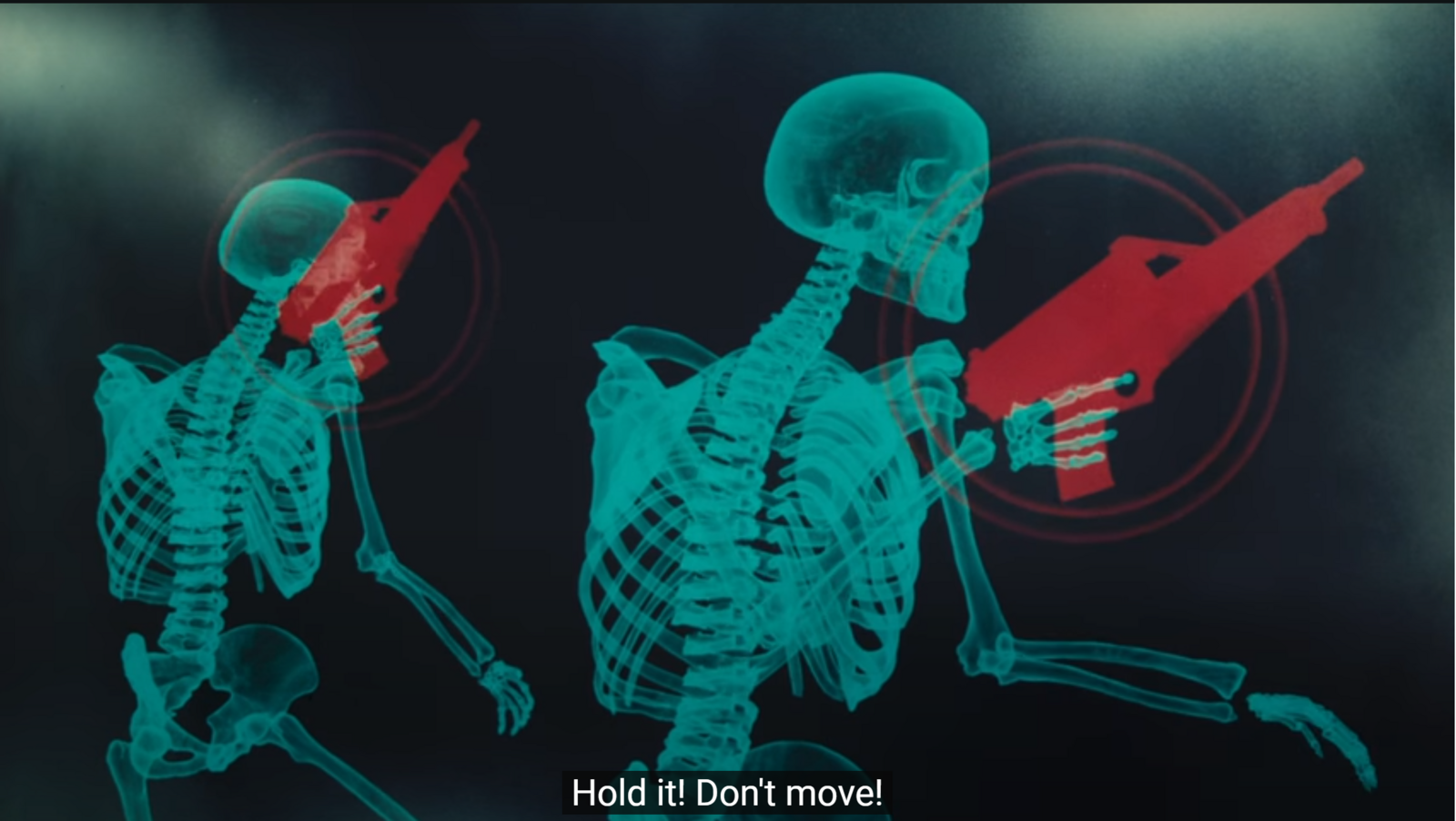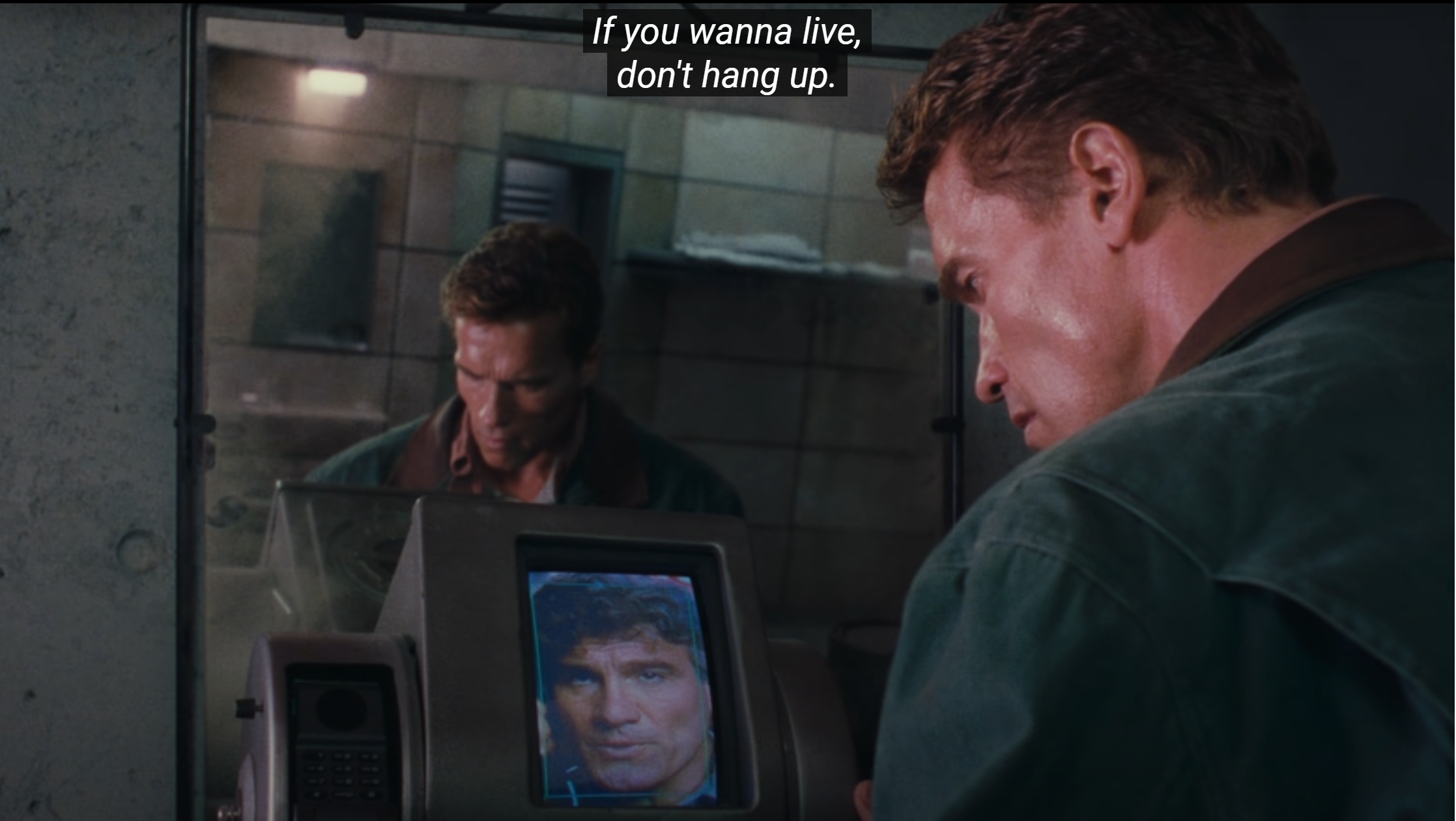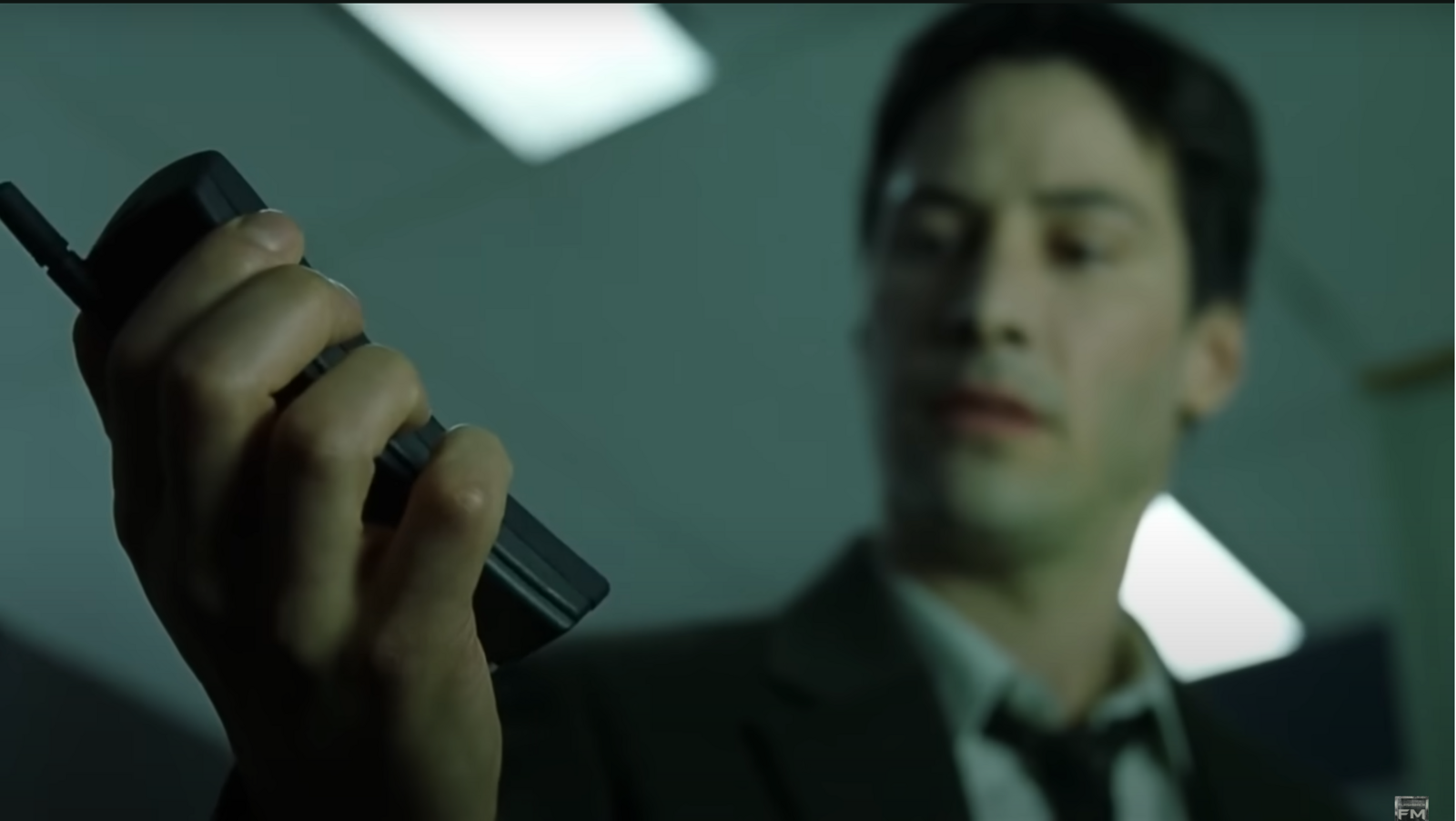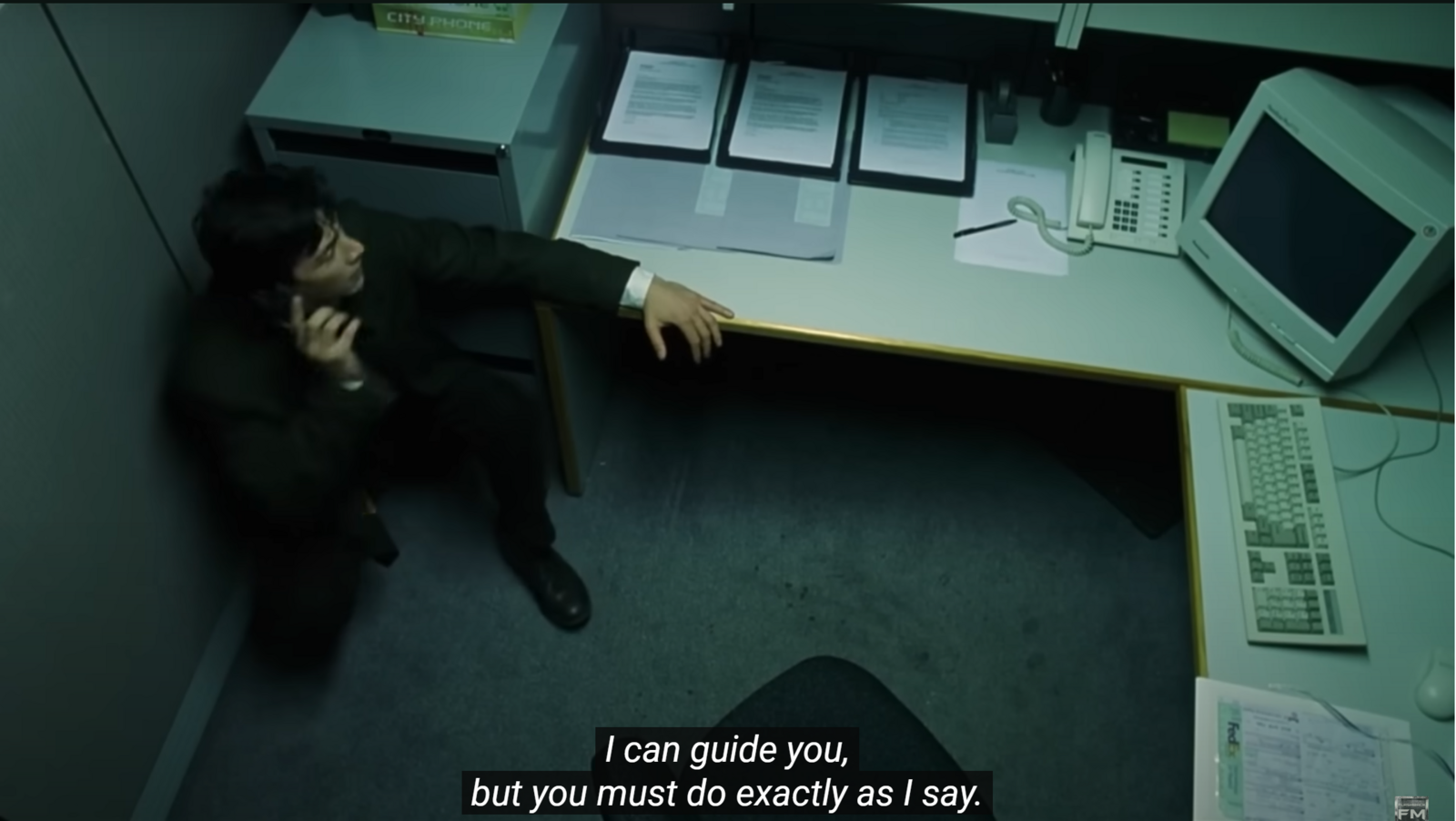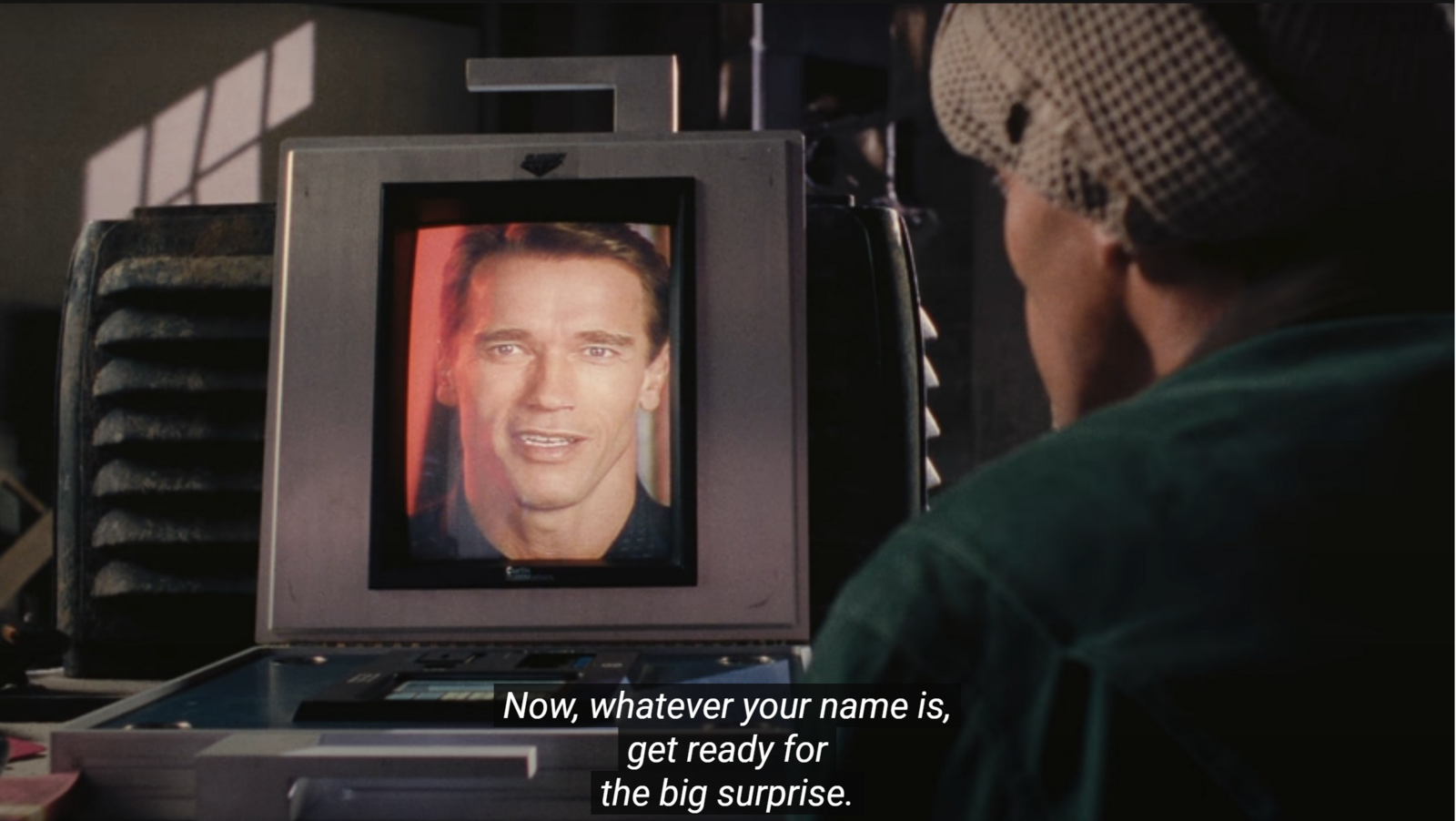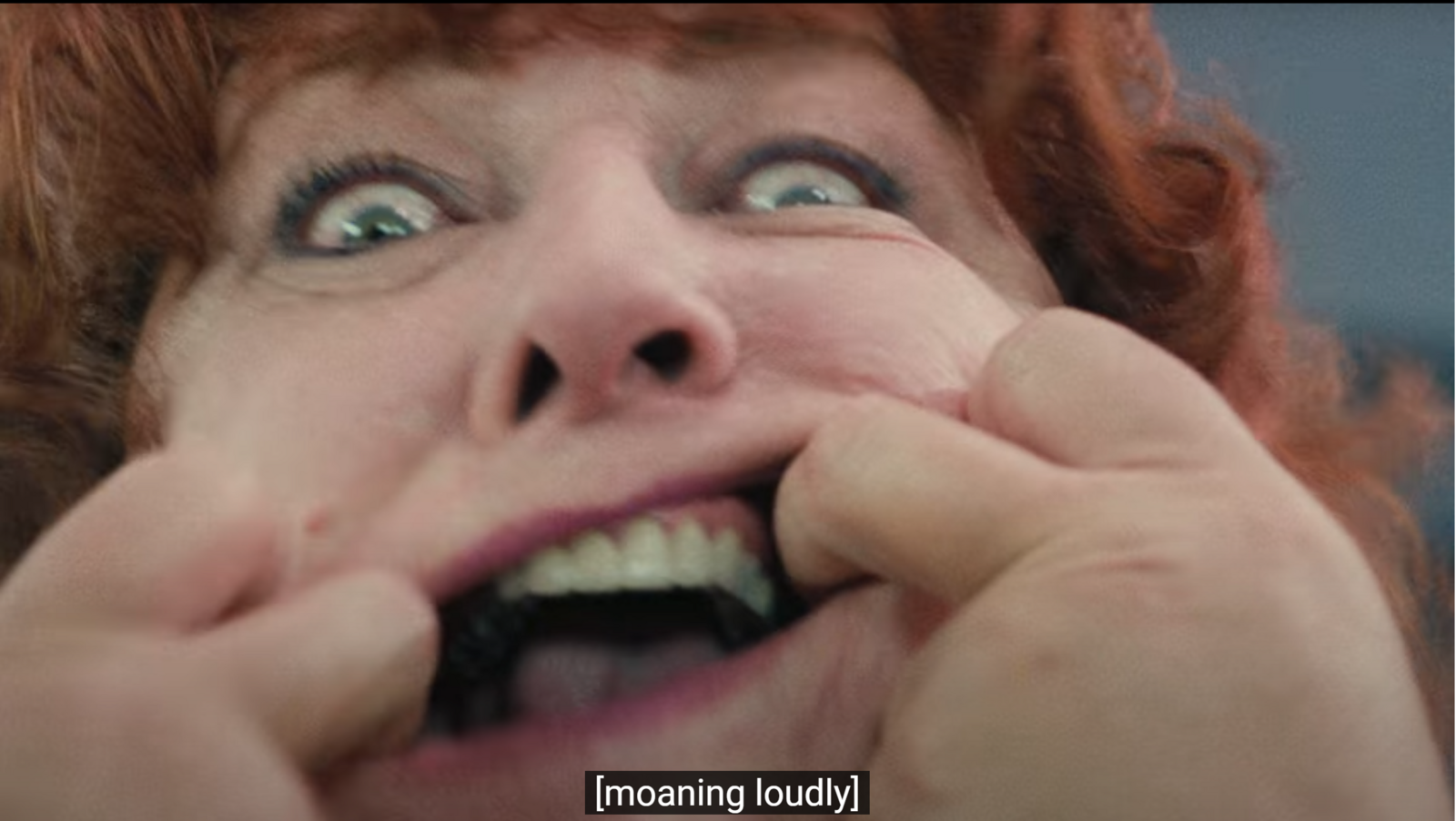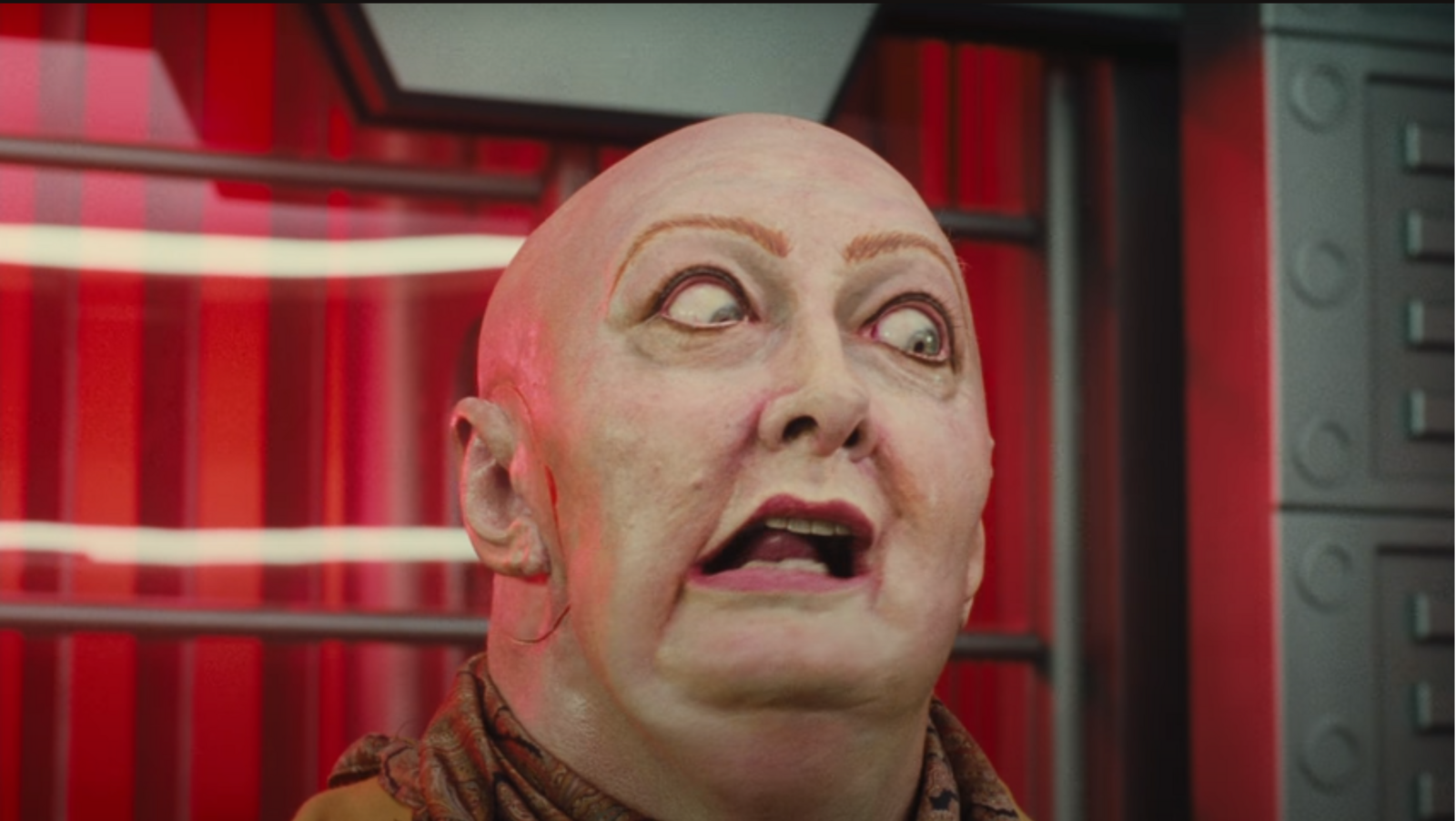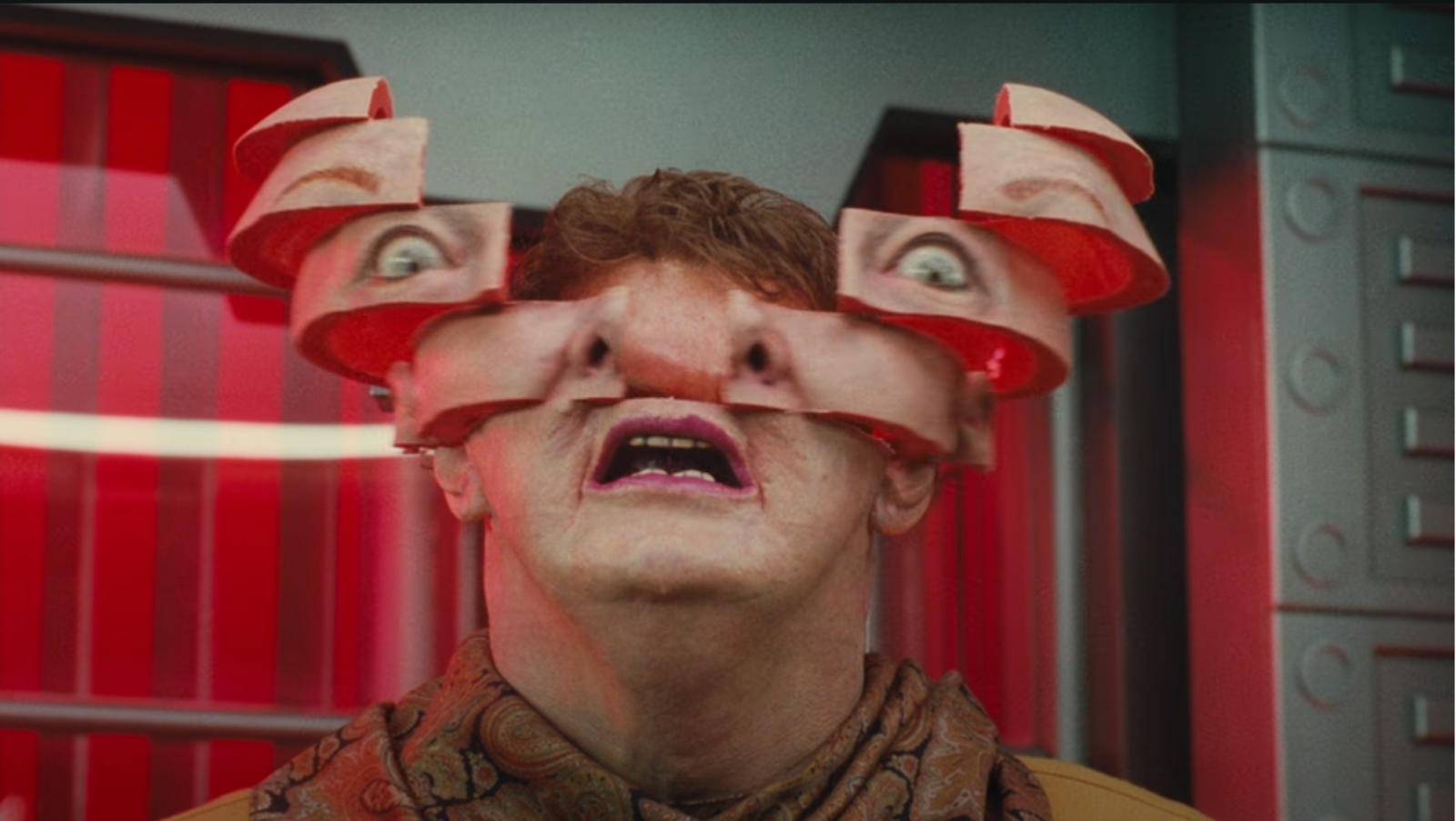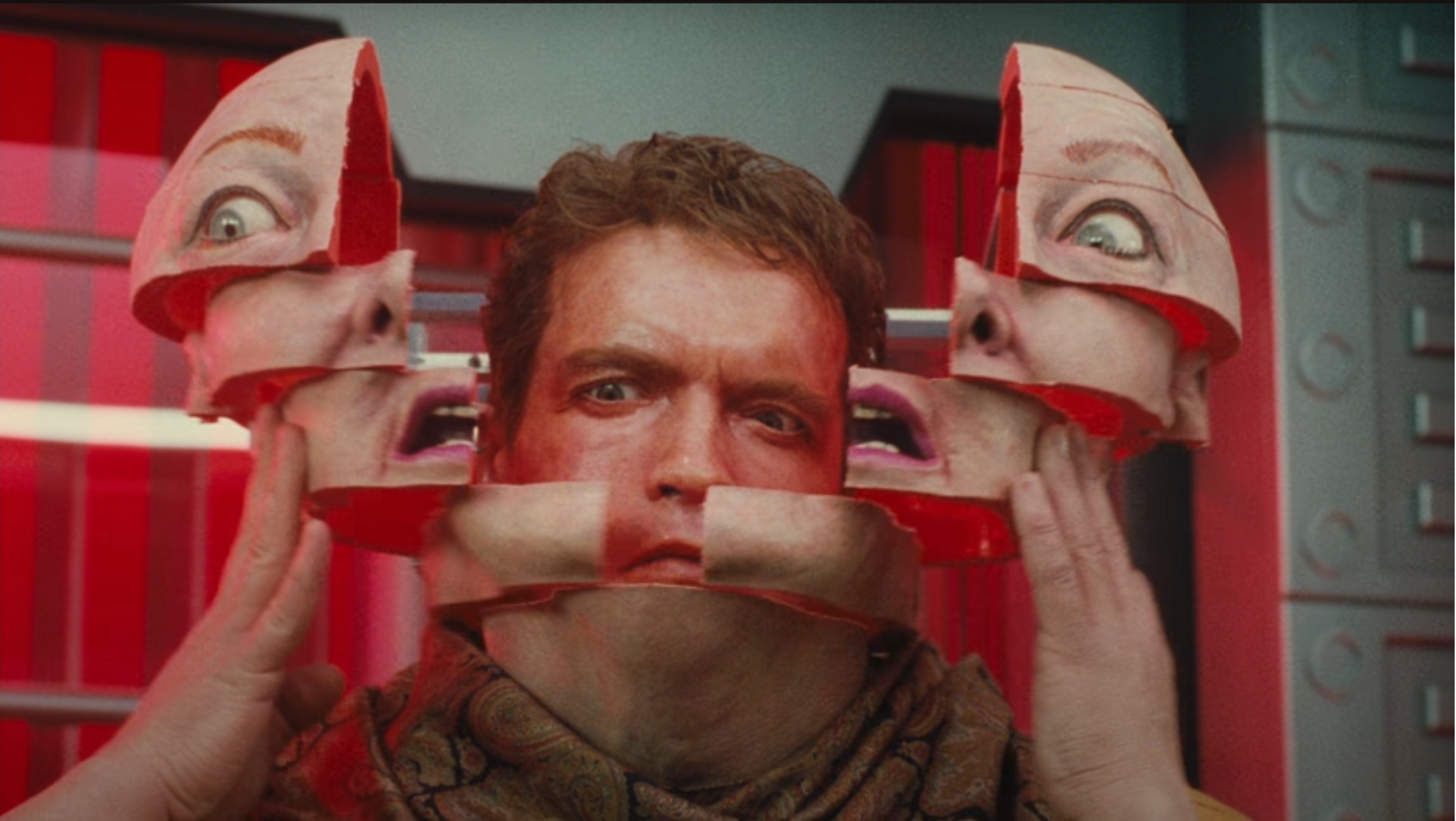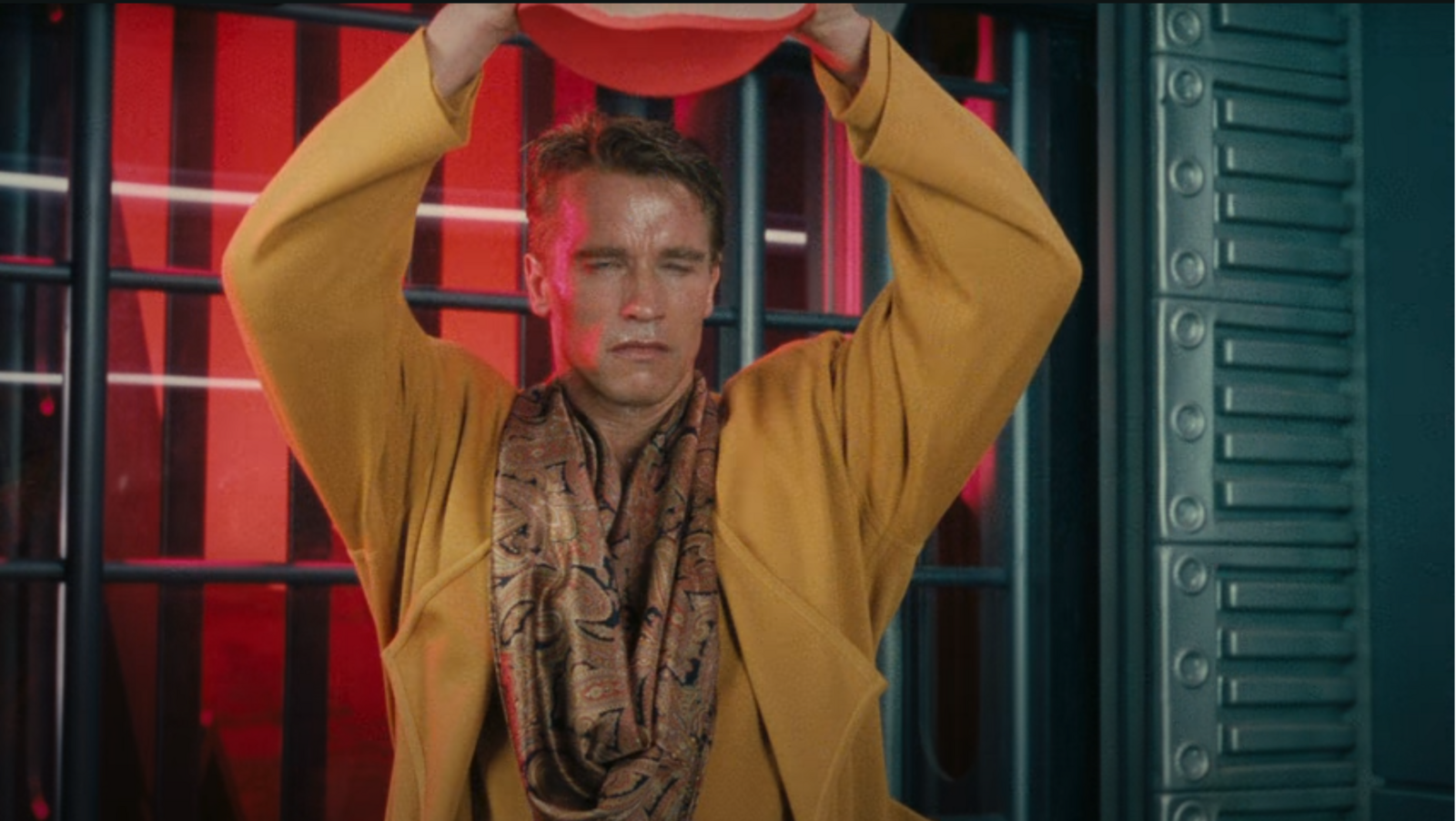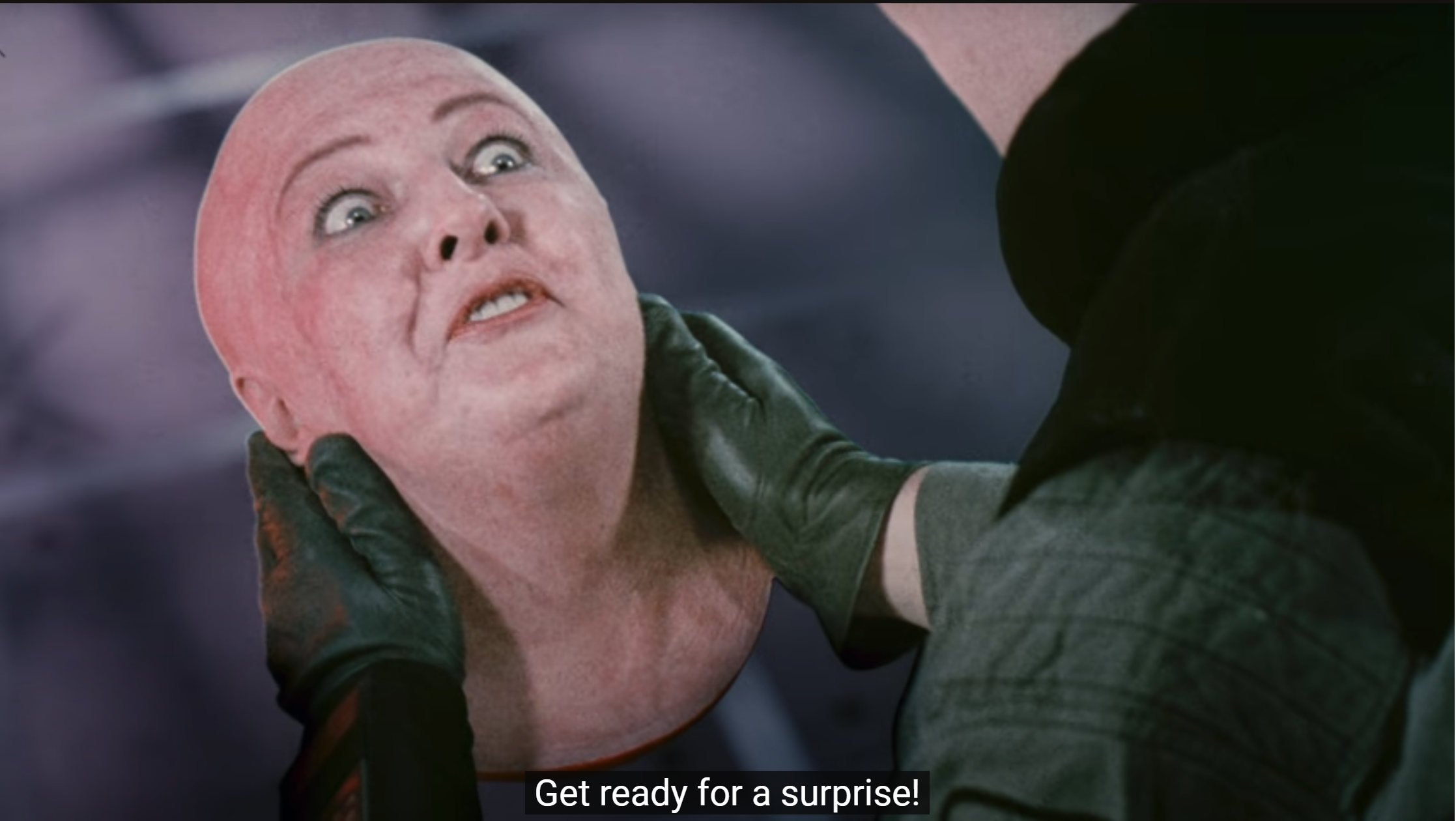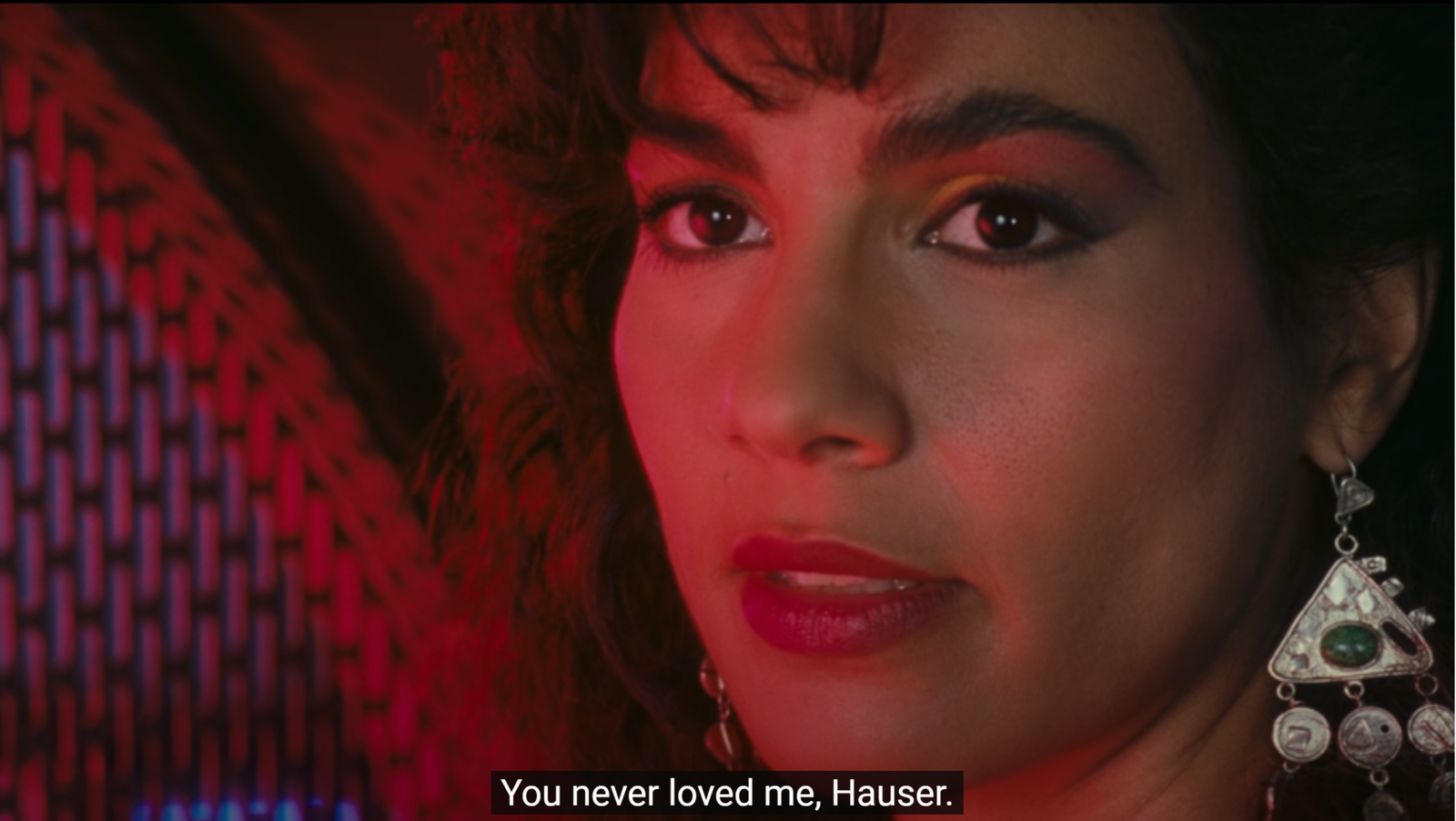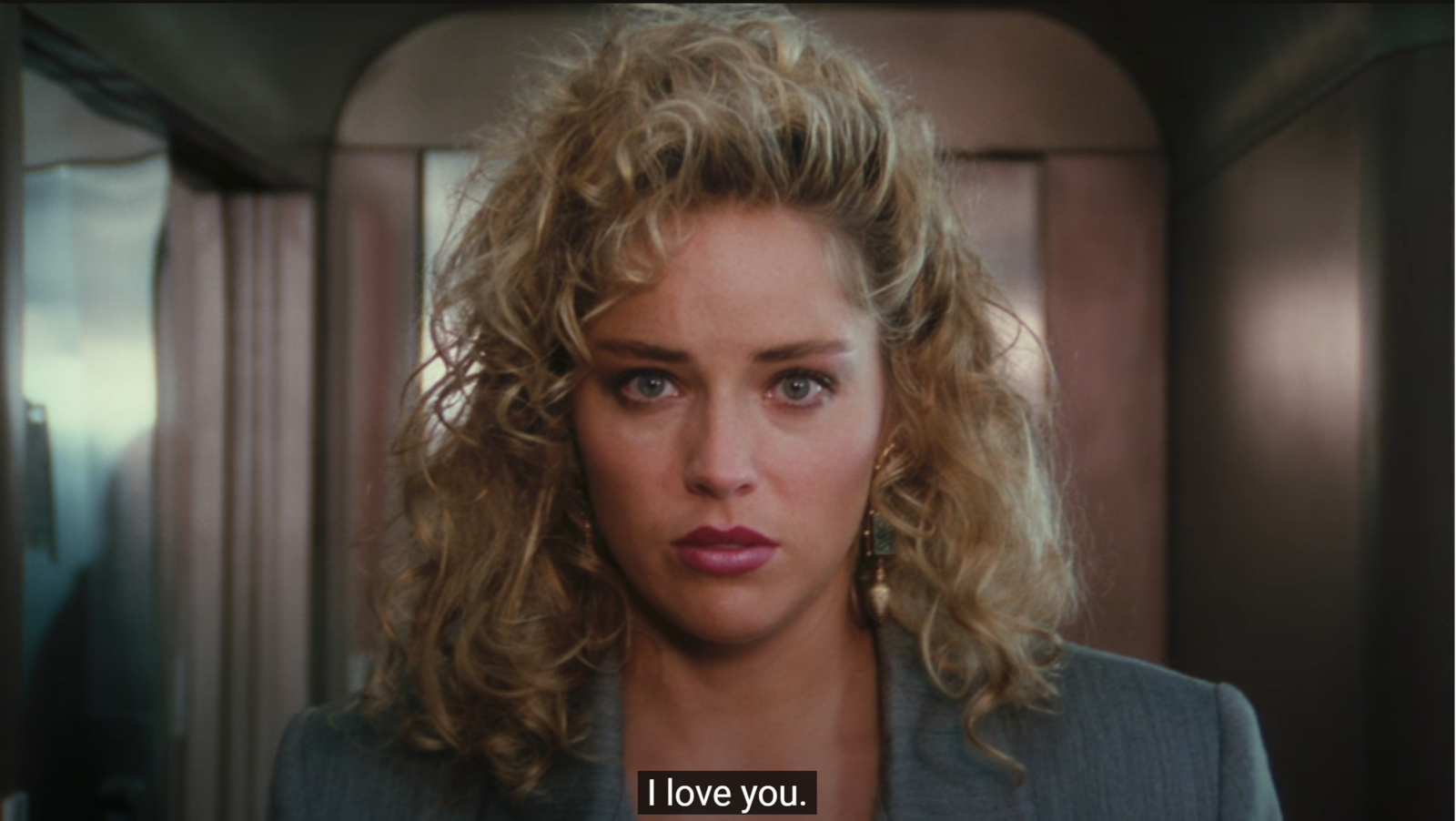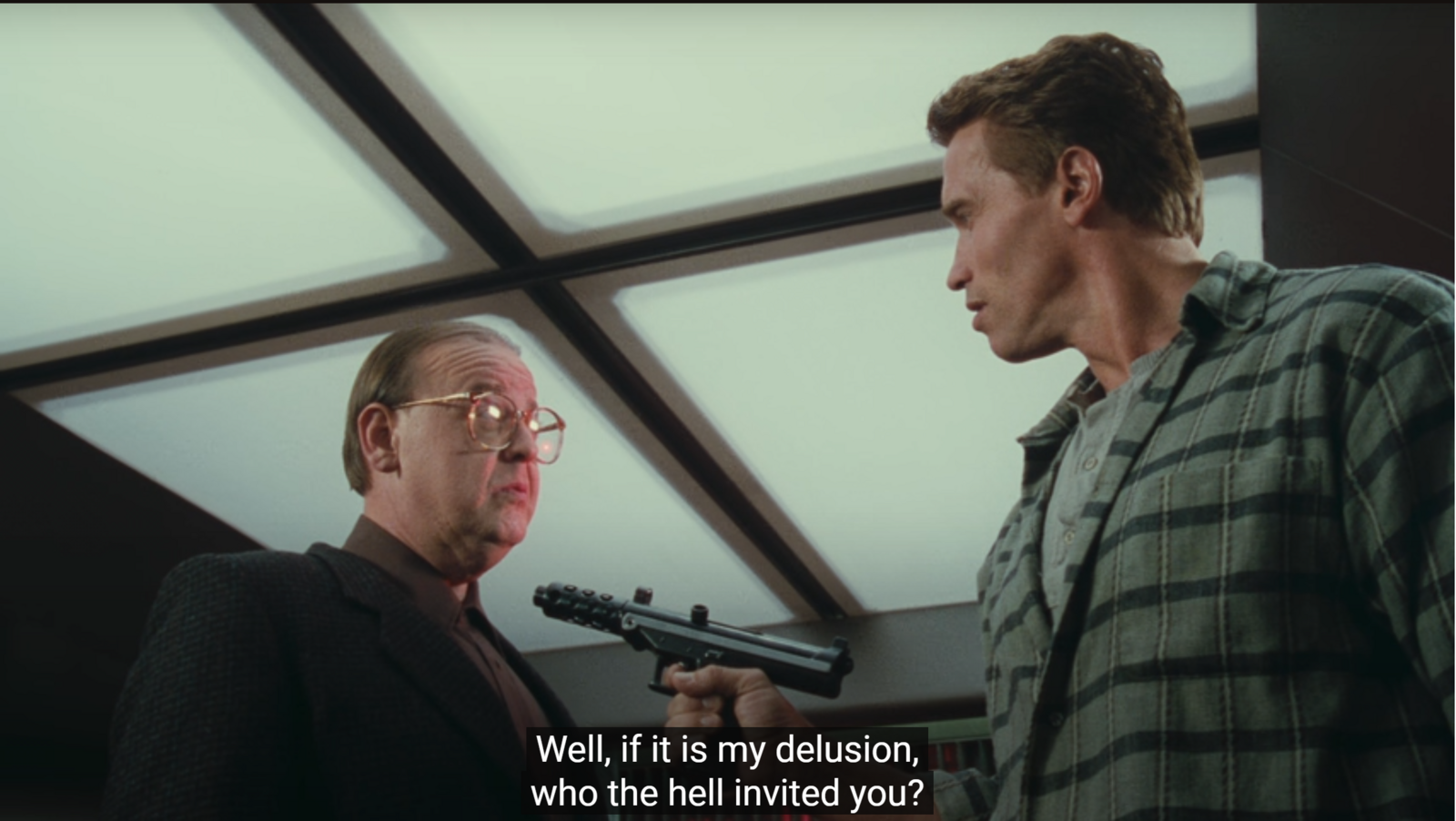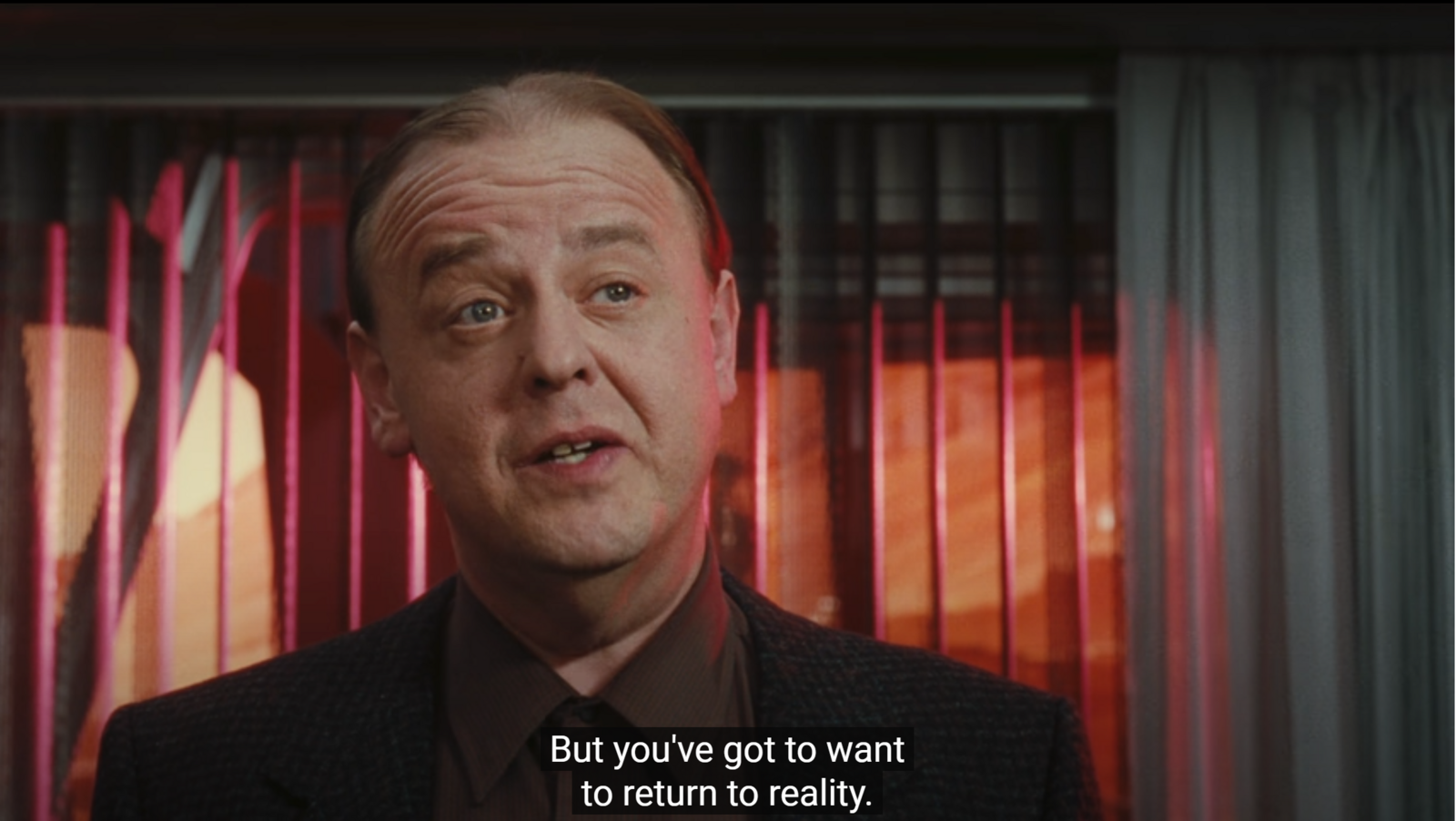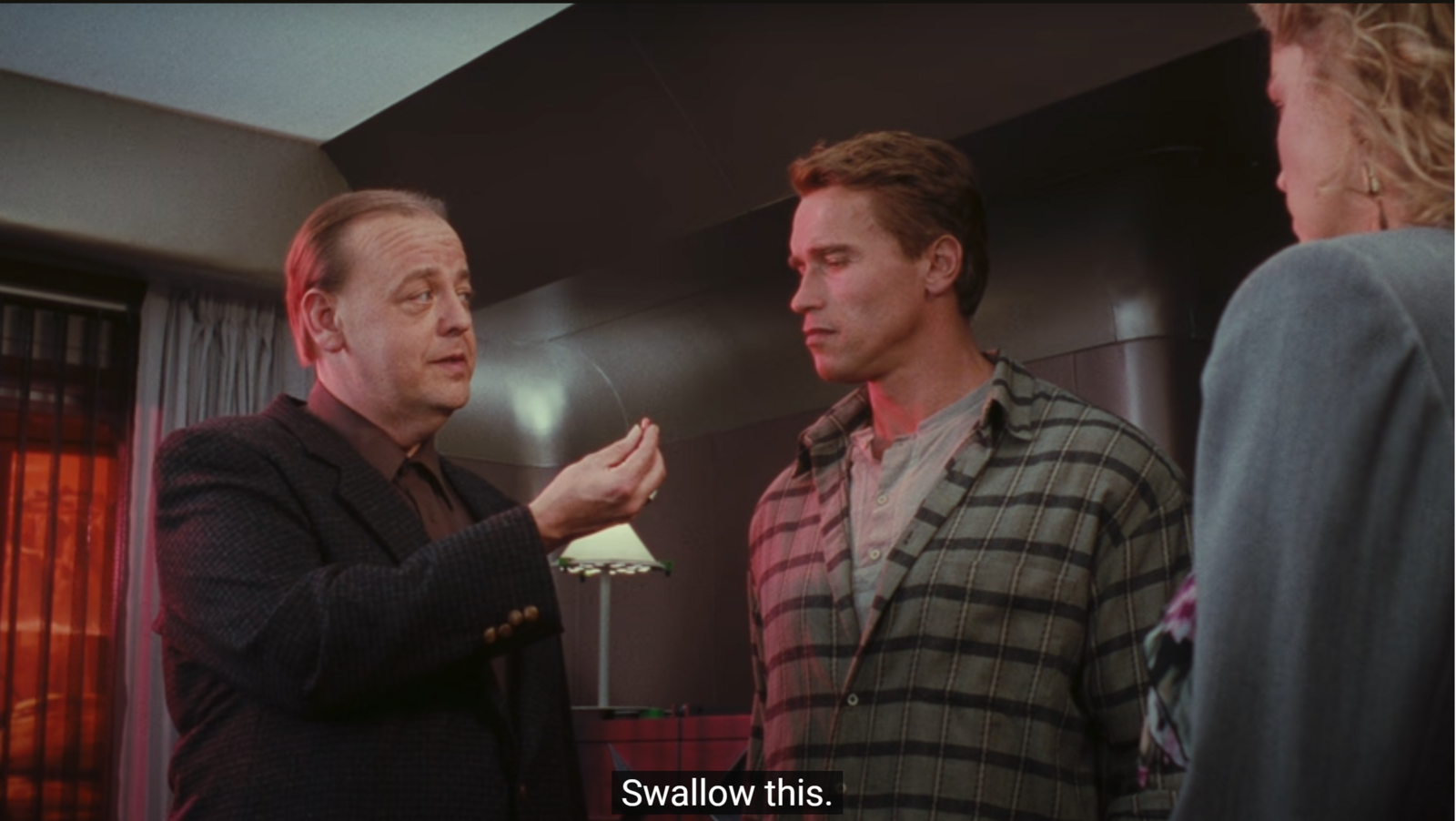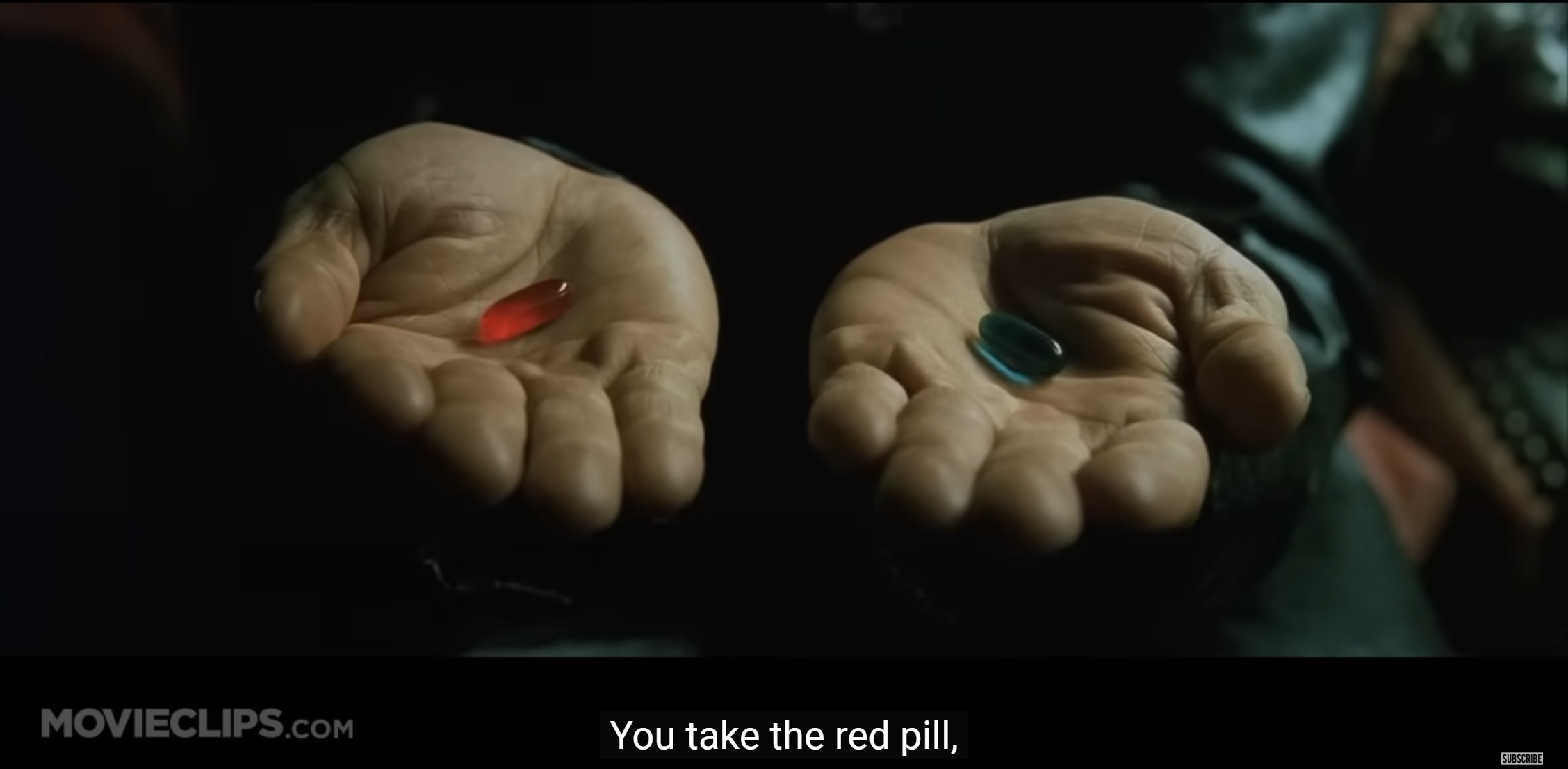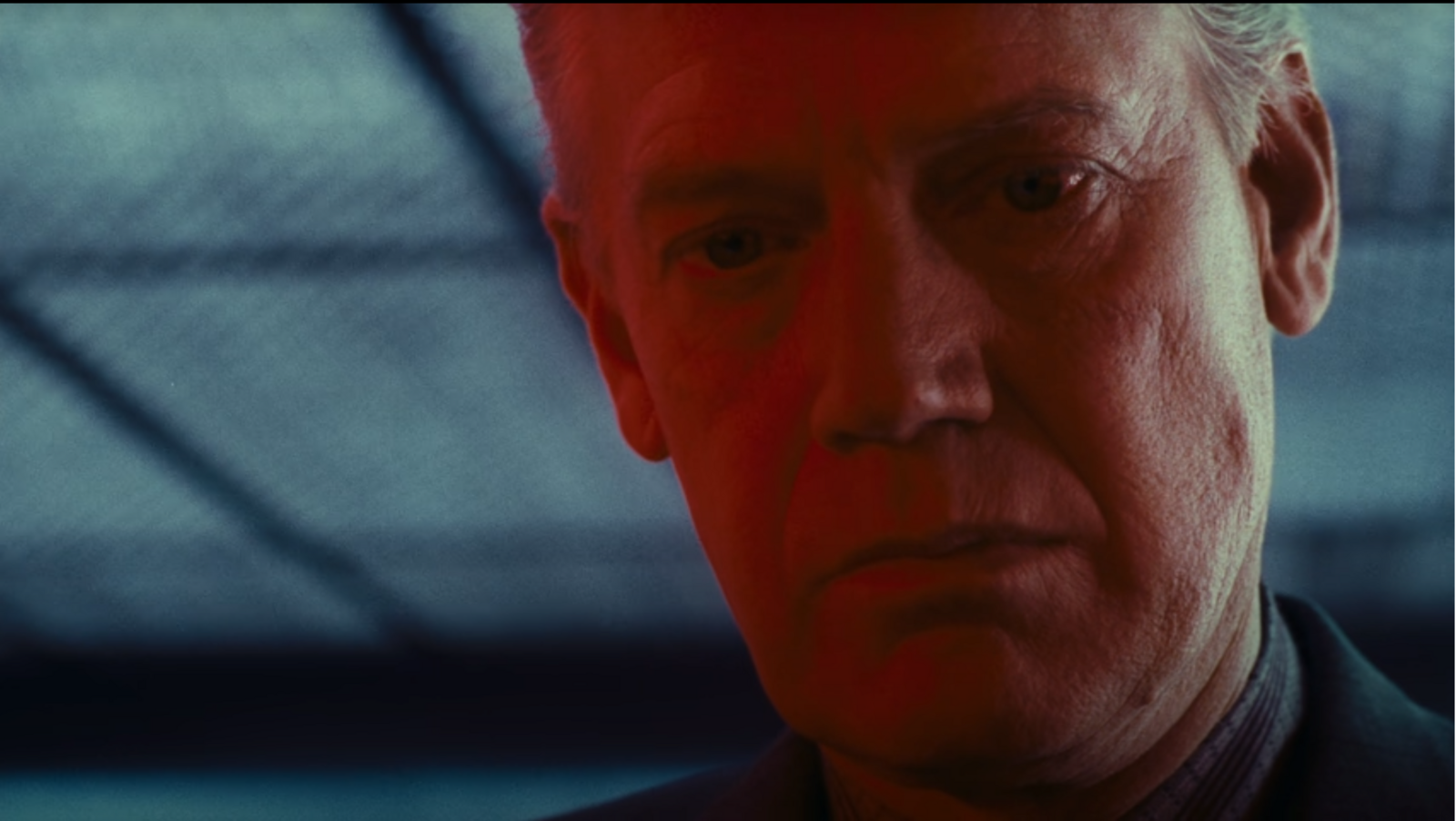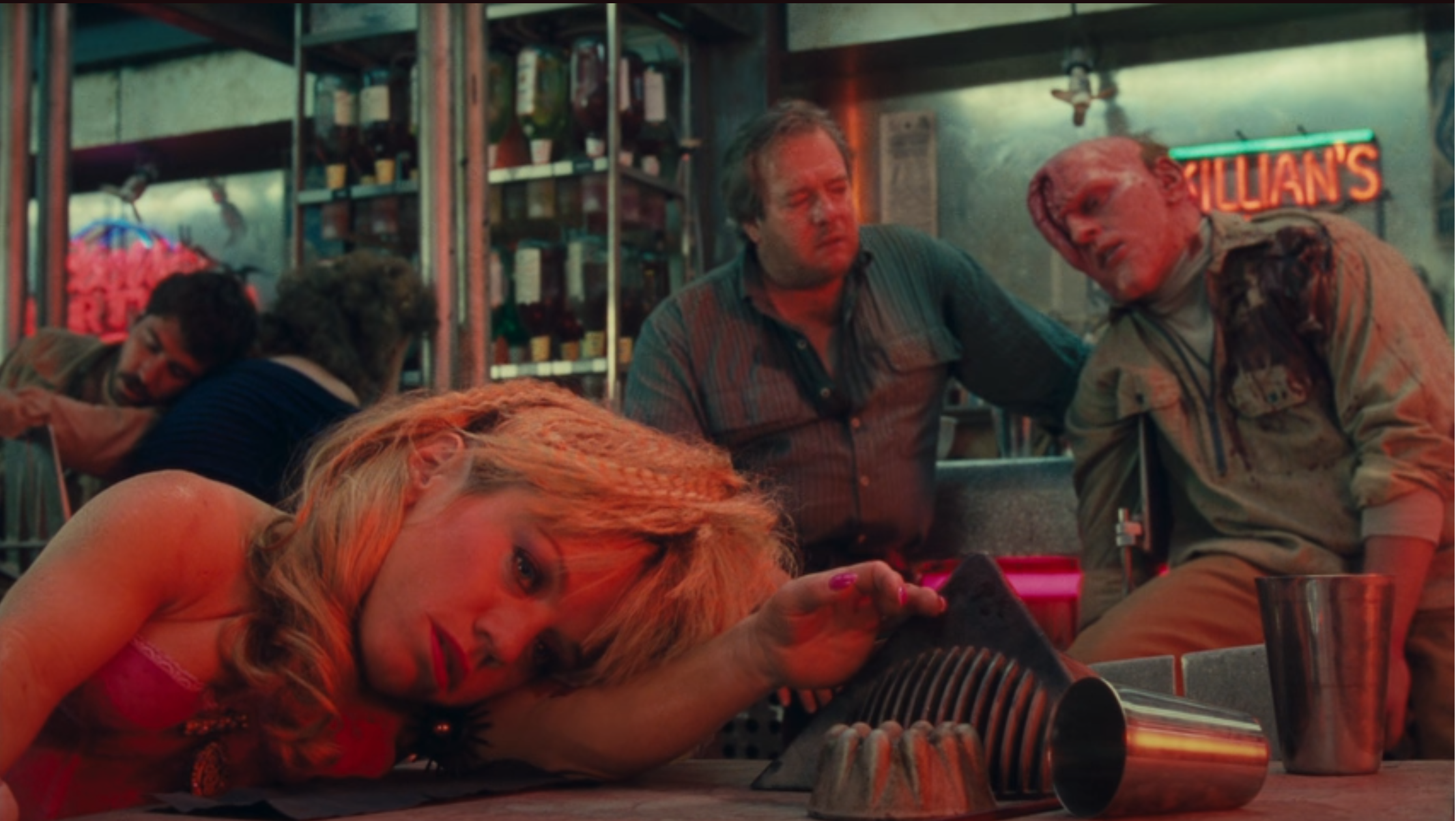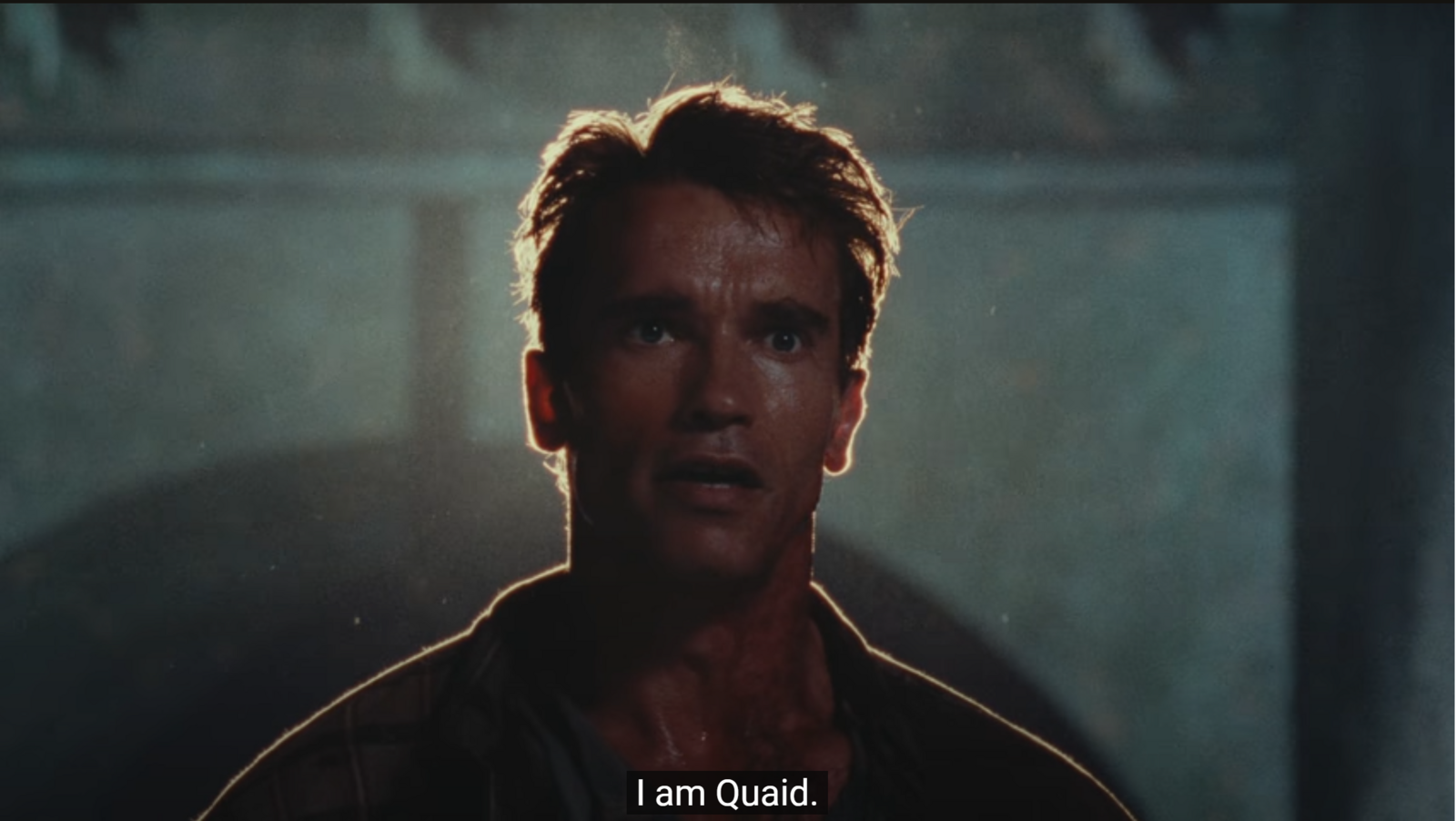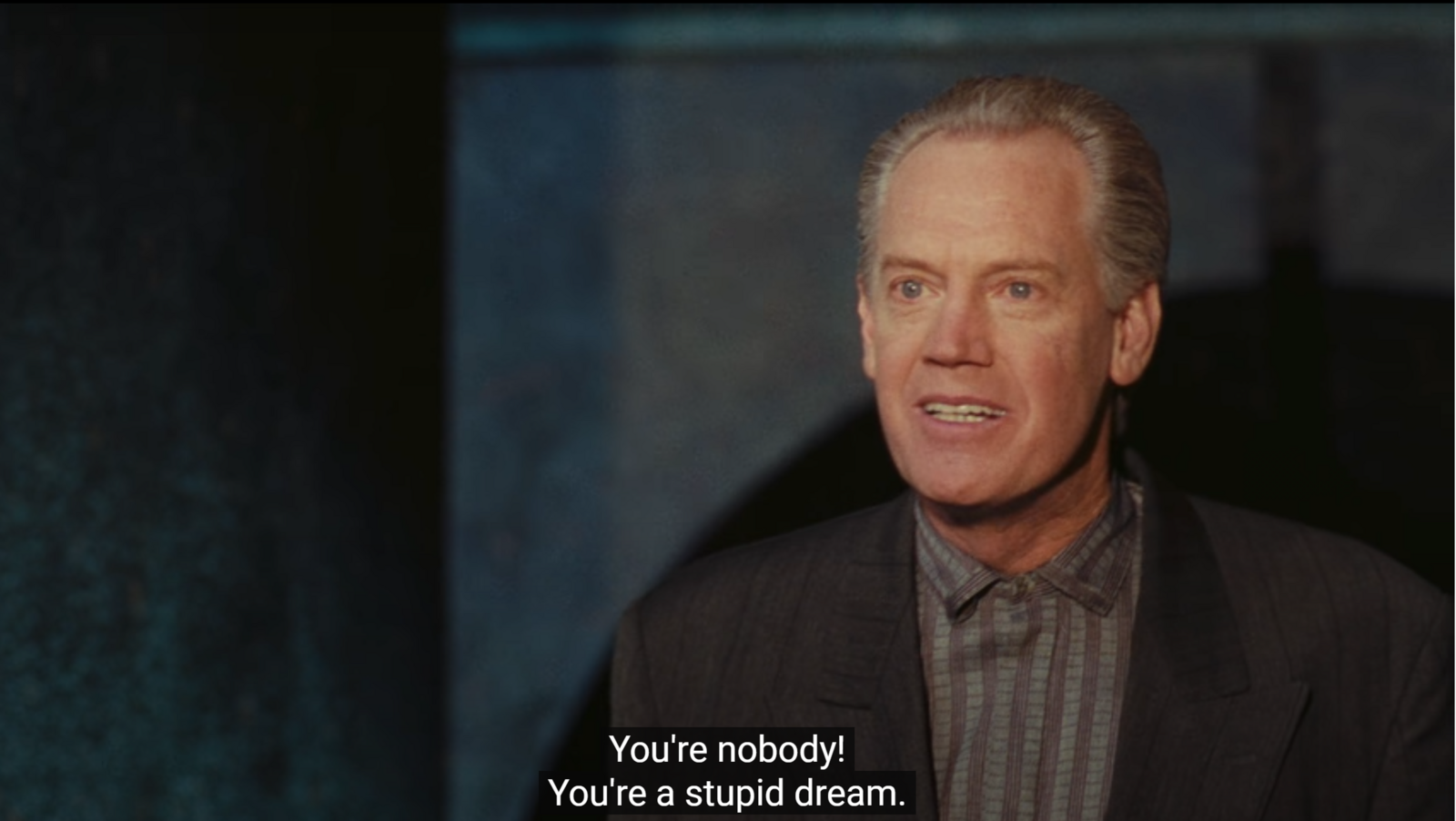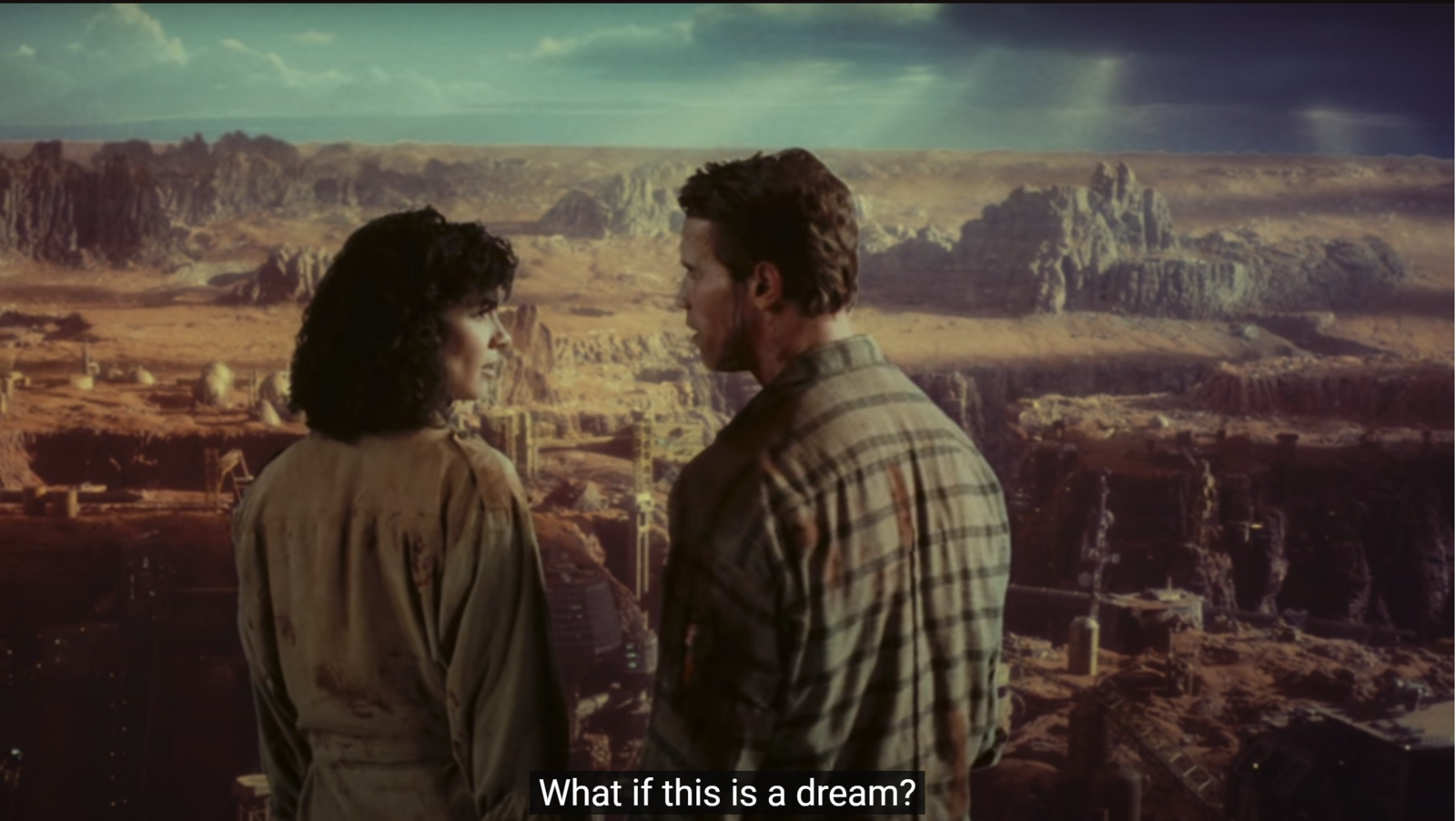I always had the impression Paul Verhoeven's 90's movies were glossy, entertaining, yet thoughtless schlock (e.g. RoboCop, Total Recall, Basic Instinct, Showgirls, Starship Troopers). A friend however recently insisted that I give Showgirls (1995) an honest, earnest watch. I ended up being swept off my feet by a movie that I felt was, yes, entertaining, but that also had an intense, intelligent social critique underlying its glittery boob-filled surface. I became aware that this quality characterizes most of Verhoeven's movies, so I've been on a bit of a Verhoeven bender to take it all in.
This week I watched Total Recall. I had never seen it before, and my impression was that it was just a stupid Arnold Schwarzenegger action vehicle; with little to recommend it apart from explosions and guns. I, was, SO, wrong!!
For me, it ended up being an incredibly meta, twisty sci-fi movie about the nature of reality, and by extension, identity. A further reading I had was that the movie was about becoming "awakened" to social injustice: how hard it is to walk away from your life's conveniences when you're benefitting from that social injustice, but furthermore, once you have that awareness, how impossible it is to continue to work for an apparatus that benefits few to the misery of many.
The movie pretty immediately had me thinking of the Matrix, and I ended up finding this thoughtful, spot-on piece from filmmaker/critic Mel Turnage: The Latent Transness of ‘Total Recall’. In this piece, Turnage describes Quaid's self-invention as mirroring that of Trans self-acceptance:
This week I watched Total Recall. I had never seen it before, and my impression was that it was just a stupid Arnold Schwarzenegger action vehicle; with little to recommend it apart from explosions and guns. I, was, SO, wrong!!
For me, it ended up being an incredibly meta, twisty sci-fi movie about the nature of reality, and by extension, identity. A further reading I had was that the movie was about becoming "awakened" to social injustice: how hard it is to walk away from your life's conveniences when you're benefitting from that social injustice, but furthermore, once you have that awareness, how impossible it is to continue to work for an apparatus that benefits few to the misery of many.
The movie pretty immediately had me thinking of the Matrix, and I ended up finding this thoughtful, spot-on piece from filmmaker/critic Mel Turnage: The Latent Transness of ‘Total Recall’. In this piece, Turnage describes Quaid's self-invention as mirroring that of Trans self-acceptance:
Quaid is a man devoid of a sense of self, and blind to the experiences of his past. He seeks identity. He seeks reconciliation.
In case what I’m saying isn’t abundantly clear here, Douglas Quaid’s memory troubles perfectly mirror the experiences a trans person goes through when discovering their identity for the first time.
The piece is succinct and worth a full read: it offers a moving reflection on coming out as trans and shares how this film meaningfully recreates the experience.
So without further ado, here are some screenshots from
So without further ado, here are some screenshots from
Total Recall (1990)
Similar scenes in Total Recall (1st row) / The Matrix (1999, two screenshots 2nd row)
-------------------
double-double
-------------------
the best scene in the movie; and potentially some evidence in favor of the Total-Recall-as-gender-dysphoria-allegory argument
-------------------
-------------------
Another similarity with the Matrix: the red pill. In the Matrix (the large screenshot 2nd row) the red pill represents leaving the cozy fantasy of your existence and awakening to reality. In Total Recall however, the red pill represents the corporation/government's attempt to hijack/manipulate Quaid's reality and therefore control him. In Total Recall, Quaid seems to take the red pill before triumphantly spitting it out. "Being red-pilled" today, a reference to the Matrix, has generally been used to describe when a men's rights activist turns away from modern feminism and general social progress, and funnily enough is a complete mis-reading of what was actually a Trans allegory in The Matrix. Total Recall's red pill actually seems a more apt, real comparison to what's happening when a person has been "red-pilled": they're being given a red pill of demagoguery and hatred by the right-wing media so that this apparatus can control them.
-------------------
-------------------
on the left: one of the first scenes, on the right: the last scene Though in my mind there is a pretty clear reading of this movie, Verhoeven does leave it slightly ambiguous which part of the movie is reality and which part is dream/fantasy. A beautiful full circle/mirror is the dream-like beginning scene with Quaid and Lori and the dream-like ending scene with Quaid and Melina; to show that it's possible Quaid could be imagining either the domestic bliss fantasy part of his identity or the adventure mission fantasy one.
----------------------------------------------------
"You visit often"
I am rapidly beginning to see Paul Verhoeven as a great social critic and masterful filmmaker. A philosopher who embedded his critique within a widely-consumed medium. Food for thought: does it devalue his work if audiences only took in the entertainment of his work, and not the ideology?
